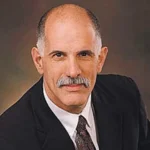By Brent Regan
IDGOP Rules Chairman
 As we approach the March 2 Presidential Preference Caucus the amount of misinformation being generated by the media and talking heads is stunning. At the Republican Party headquarters literally half the staff’s time is being consumed correcting this misinformation. Part of this effort is to be expected because the caucus process is new and people have legitimate questions. Many of these questions can be answered at the IdahoRepublicanCaucus.com website. I have also attempted to explain the process in my previous Common Sense articles.
As we approach the March 2 Presidential Preference Caucus the amount of misinformation being generated by the media and talking heads is stunning. At the Republican Party headquarters literally half the staff’s time is being consumed correcting this misinformation. Part of this effort is to be expected because the caucus process is new and people have legitimate questions. Many of these questions can be answered at the IdahoRepublicanCaucus.com website. I have also attempted to explain the process in my previous Common Sense articles.
The latest dustup is over media access to the caucus sites and IDGOP headquarters during the actual caucus. Let’s examine the claims.
Starting with the headline from the Idaho Capitol Sun which reads “Idaho GOP won’t allow news media inside upcoming Republican presidential caucus” followed by the claim “Chairman Moon’s decision to block press access to the presidential caucus and the official tabulation of votes betrays the presumption of openness that inheres in our democracy.”
This borders on journalistic malpractice. Chairman Moon is simply following the rules set forth by the 225 members of the Republican State Central Committee. Also, balloting REQUIRES a degree of secrecy to preserve the voter’s privacy and prevent intimidation by bad actors, including members of the media.
The caucus is being conducted at 210 locations. Under state party rules “Only eligible voters and their minor children shall be admitted into the caucus. No other guests will be permitted.” Even without that rule, would you like to have reporters and cameramen inside your polling location, recording you as you cast your private vote? Probably not, because it would be an invasion of your privacy and also a security issue. Reporters are typically stationed outside a polling location where they can ask questions and conduct exit polling.
Just because random members of the media are not allowed inside the caucus location does not mean the tabulation is done in secret. Again, state party rules specify that “Each candidate or their designee may observe the tabulating process.”
Tabulation is done by at least two tabulators who shall be appointed by vote by the assembly at each of the 10 caucus location. Results will be announced by the Caucus Captain to the witnesses and any voters who want to stay and watch the counting. The results will then be transmitted to IDGOP headquarters by both the Caucus Captain and the Caucus Coordinator. At IDGOP headquarters, the 420 results, two from each the caucus captain and caucus coordinator of the 210 locations, will be entered by two staff members into a tabulation spreadsheet while being observed by the campaign designated witnesses. Once the data is checked and cross checked, the current totals will be updated on the IDGOP website. The article implies that because some caucus locations are in public buildings the press should be allowed. This is a false argument. According to the Idaho Attorney General, private organizations, like the IDGOP, can control who may attend their meetings even if they are held in a public building. (AG Opinion 23-03).
The reporter goes on to claim “Idaho Republican Party officials plan to close the state party’s headquarters in downtown Boise while they tabulate results that are called in from each of the 210 caucus sites.”
The caucus is on a Saturday and the headquarters are always closed on a Saturday. Also, the headquarters are just a few offices and there isn’t the physical room to accommodate flocks of reporters milling about. Furthermore, if one news agency is allowed access then all news agencies must also be allowed.
In most government election offices there is a defined area, usually behind glass, where the tabulation occurs and the press must remain outside. The notion that reporters can be in the tabulation area poking around is sophistry. For the caucus the media also will be limited to being outside the glassed in area.
When a reporter urges “Idaho GOP leaders to reverse their decision” knowing full well it is specified in the rules and not a “decision,” followed by saying “What are they trying to hide,” it’s a clear manifestation of an acute lack of situational awareness.
The freedom of the press comes with a responsibility to the truth; to present the unbiased facts free of speculation so that the citizen can be better informed. Sadly, we are far away from that condition. Democracy demands the rational evaluation of candidates based on fact. For members of the media to try to tip the scales of that evaluation with biased reporting is the true threat to democracy.
